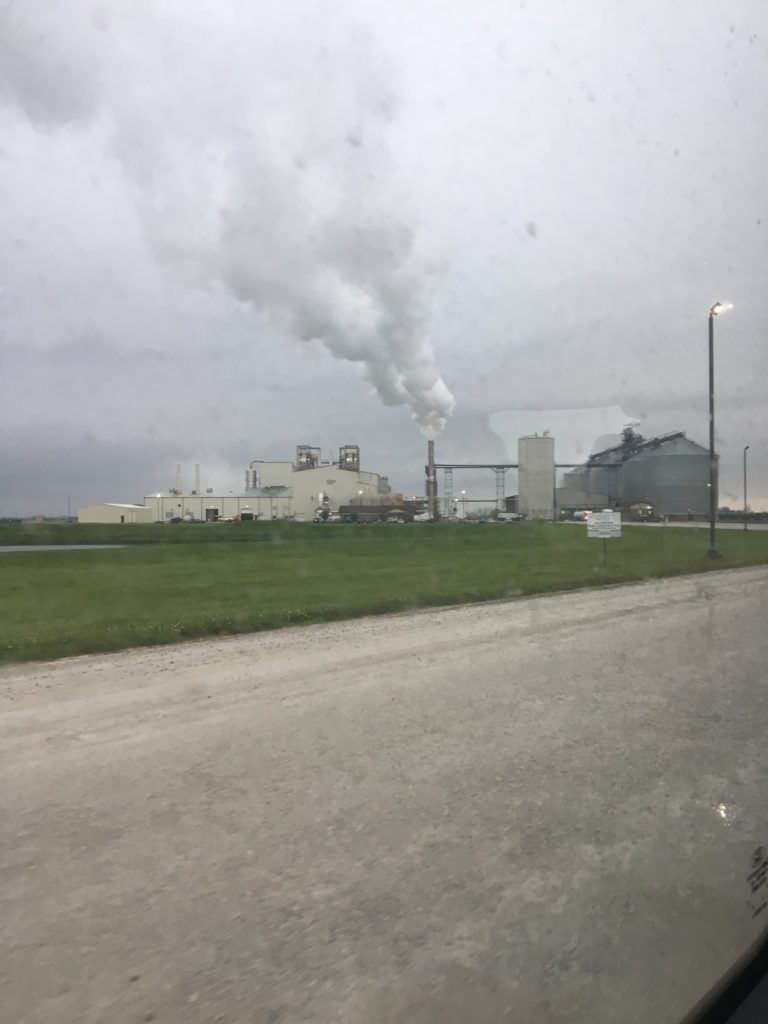Today’s adventures, which HN titled “fruit basket upset” plans, were determined by the weather. There were plenty of potential plans including picking up rocks in fields and witnessing the maintenance of farm machinery. We ended up focusing on three events during the day.
We began at the Poet Plant, which produces ethanol from corn. We were walked through the process and logistics of making ethanol and then given a walking tour during which we got to wear safety helmets and glasses. The plant was loud and large. It smelled of peanut butter toast, but apparently that is what corn smells like because everyone else claimed it smelled like corn. The plant itself seemed much more massive up close than when we were driving towards it from afar. The plant’s daily operation utilizes a lot of recycling and features little waste, which was a surprise to me. The three main controversies with using ethanol seem to be the creation of smog when used in vehicles, the belief that vehicles are not made to run on corn and therefore become ruined, and the increase use of corn as a mass produced crop which has many negative environmental and health impacts.
Next, the females of the trip went to a farm not too far away from the plant to build a fence for cows. The fence that we created spanned the entire length of the field; I do not know the exact measurements of the field, but it had to have been at least a half mile. My fitness tracker notified me that I reached my fitness goal of the day, and I am pretty sure that I owe it to fence building. At this farm we also got to see and photograph all kinds of dairy cows including a calf that was born at 9 pm the previous night. During the search for a missing calf, I lost a rain boot and managed to sink knee deep barefoot into some of the soggiest mud I have ever seen. The calf was found later so it made it worth it. Kevin Dietzel, the man who owns Lost Lake Farm, practices rotational grazing, a technique appreciated by Brian Wosepka, the next farmer we visited.
Brian has a family farm of about 100 acres, where he wants to practice the principles of sustainable agriculture and produce food in a local food system. The sustainable practices that characterize Brian’s farm are a little different than what I am was accustomed to at Furman. He is more interested in implementing sustainable practices for religious, political, and human health reasons. It was interesting to see how folks with more conservative leanings are working to promote locally sourced goods.
Brian also discussed the difficulties of finding markets for his beef and chicken products. Poet, Brian, and Kevin have all faced some sort of policy that has made it more difficult for them to succeed while being smaller than some other player with more money, and therefore more political power. Brian in particular has found that most regulations do not differ depending on scale of the operation. He noted that this makes it difficult for him to make connections and find success. For example, he discussed how slaughtering regulations are one-size-fits all, and as a result, make processing his beef quite expensive in comparison to a large-scale meat processing plant.


